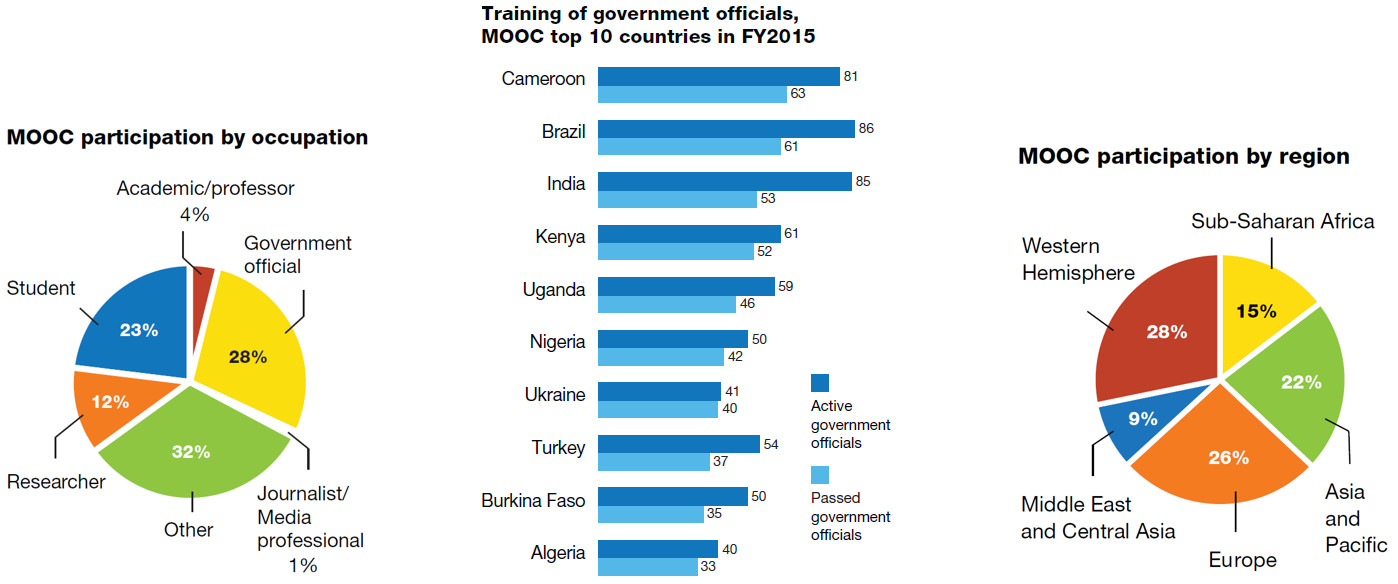SPOTLIGHT
IMF Training Expands through Online Courses
The IMF has entered an exciting new phase in its approach to training, with the adoption of new online learning courses designed in partnership with edX, the nonprofit online learning initiative founded by Harvard University and the Massachusetts Institute of Technology. The partnership enables the IMF to expand the reach of its training program to more member country officials and to offer the wider public audience access to its courses through so-called massive open online courses (MOOCs).

Introducing new online course—Debt Sustainability Analysis (DSAx):
The new courses—created by the Institute for Capacity Development in collaboration with other IMF departments—are designed with short video segments interspersed with quizzes and hands-on exercises, and include a discussion forum to allow participants to network and discuss course content. The use of computer grading saves on instructor time and means that the IMF can allow virtually unlimited enrollment. Since the launch of the program in late 2013, these courses—free and open to anyone with an Internet connection—have attracted more than 10,000 active participants, of whom about 6,000 earned a certificate of completion.
New opportunities for low-income developing countries
Online learning is creating training opportunities for a wider range of country officials. Forty percent of online graduates to date are government officials, boosting IMF training by four percentage points in FY2015. The most numerous recipients of this training have been officials in sub-Saharan Africa, serving to shift the distribution of training toward the region. Online training is also shifting to officials in low-income developing countries, who received almost half of it in FY2015, compared with slightly less than 40 percent of face-to-face training.
MOOCs are serving as an important channel for IMF outreach: four-fifths of participants agree that the courses have increased their understanding of the IMF and its work. The courses have been well received, with participants expressing appreciation to the IMF for making this training openly available. By engaging youth (one-quarter of participants are students) and sharing knowledge, MOOCs help a diverse global audience better understand economic policies in their own countries and around the world.

Online courses to date include the following:
Financial Programming and Policies, Part 1: Macroeconomic Accounts and Analysis (FPP.1x) provides an introduction to financial programming, presenting the principal features of the accounts of the four main sectors that comprise the macroeconomy (real, fiscal, external, and monetary) and their interrelations.
Debt Sustainability Analysis (DSAx) gives a comprehensive overview of debt sustainability analysis and a medium-term debt management strategy framework as adopted by the IMF and the World Bank.
Energy Subsidy Reform (ESRx) builds on an extensive cross-country analysis, which is reported in the recently published IMF book Energy Subsidy Reform: Lessons and Implications, to make recommendations on how best to implement reforms aimed at reducing state subsidies on energy.
Upcoming courses include Macroeconomic Forecasting; Financial Programming and Policies, Part 2: Program Design; and Financial Market Analysis. FPP, Part 1 has already been translated into French and will be translated into Spanish and Russian during FY2016.
See for yourself
The free courses are online at: https://www.edx.org/school/imfx







